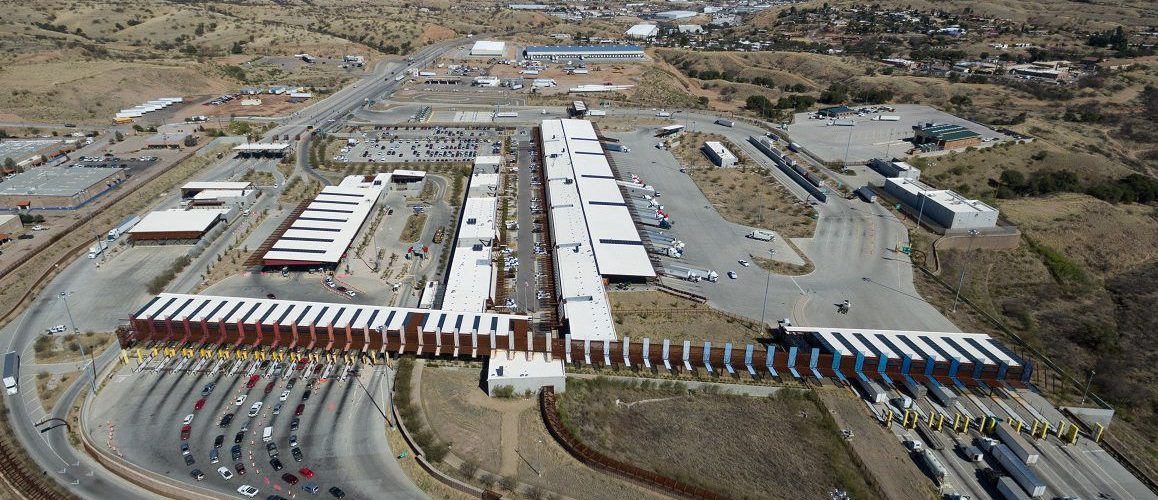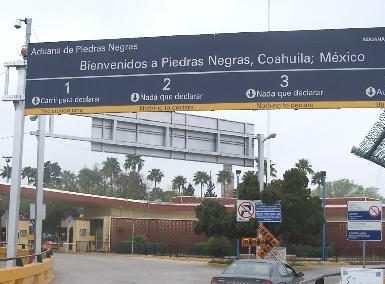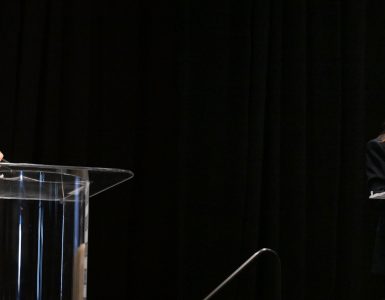On the first day of the 60th annual Arizona-Mexico Commission Summit, leaders on both sides of the border discussed the benefits of and strategies for operating in both Arizona and Mexico.
Expanding into the Mexico market
Moderated by attorney Patrick Welch, the first panel focused on the business expansion from Arizona into Mexico and consisted of: Luis Felipe Seldner III, president of Tetakawi, Victor Smith, president and CEO of JV Smith Companies, and Hector Placencia, partner of BRH2 Plastics.
Initially, the speakers discussed the growing of nearshoring versus offshoring. To help reduce costs, many companies have based some of their operations overseas. But recently, nearshoring has become increasingly attractive – especially for a state like Arizona that’s in close proximity to Mexico. In many ways, Arizona firms can save more money by operating in Mexico rather than abroad in southeast Asian countries like Vietnam or China.
“We’ve expanded because – two items – in our sector, in leafy greens, organics started to take off,” Victor Smith explained. “We were able to go down and, as opposed to the higher-priced ground in Yuma, which is very high-priced vegetable ground, we were able to go down and invest in ranches in Baja and convert them in a three-year conversion – or sometimes it was only one or two… we were able to capitalize and get in that opportunity early.”
Getting involved in Mexico’s market isn’t always an easy process, as noted by the panel. In terms of making the right business connections, utilizing the best resources, and more, there are blurry areas for businesses. But with the right tools, the partnership can form smoothly and pay dividends long-term.
“We talked about that a little bit earlier in our conversations prior to starting about the importance of due diligence when you’re going into Mexico. Just as important due diligence is when you’re looking to invest in someone in any other state in the United States,” Welch said. “It’s nice to have a resource of professionals, whether it’s accountants, attorneys, lobbyists, just professional networks that you make here at the Arizona-Mexico Commission.”
Welch emphasized the importance of making connections at the Arizona-Mexico Commission to have the perfect resources when looking into expansion efforts into Mexico. Once companies find the right connections through organizations like the AMC, the expansion into Mexico will help companies grow – the panelists experienced that first-hand.
“A large part of our success growth was that we did diversify and stay in Mexico,” Smith said. “In the produce sector, the ultimate thing for our customers and to the restaurants and to the retailers is that they have a consistent supply of very high-quality [produce]. When they tell you they want 52 weeks out of the year, you can’t give them 51. So that really necessitated the need for another shipping area to help us augment and improve our supply-chain performance.”
All three panelists emphasized the importance of passing the United States-Mexico-Canada Agreement (USMCA). Because the countries’ business operations and trade patterns are so intertwined, the agreement is mutually beneficial for all three countries.
“Most of the raw materials that we purchase and most of our manufacturers that are down there purchase American-made,” Placencia said. “For example, we consume probably 40 tons of, in particular, Exxon Mobile – so it comes from the U.S., it goes down to Mexico, we transform it into a finished product, and then it comes back to the U.S. as a finished good, so it is all intertwined.”
Expanding into the Arizona market
The second panel focused on the expansion from Mexico into Arizona and featured Russ Jones of R.L. Jones Customs Broker; Kevin O’Shea, Vice President of international trade for the Arizona Commerce Authority; David Lopez, CEO of David Lopez & Co., a public accounting firm; and Santiago Astengo, assistant vice president of business banking of the National Bank of Arizona.
When analyzing some of the major benefits of doing business in Arizona, Welch highlights the human capital strengths of the area.
“That’s one of the biggest selling points of the Arizona market, I think, to companies who are looking to relocate,” Welch said. “Not just the physical proximity to the border, but the fact that you’ve got intellectual capital on the ground here and the people who are doing business here that know how to get cross-border business.”
The panel also emphasized the significance of the corporate tax cuts in both Arizona and the nation. President Trump’s Tax Cuts and Jobs Act reduced the corporate tax rate to 21 percent, which significantly helps business’ profit margins in the states. Arizona specifically has a relatively low corporate tax rate of 4.9 percent.
“Fortunately for those that are establishing themselves here in Arizona, Arizona is one of the states with one of the lower tax rates,” Lopez said. “Arizona can be somewhere between being 5 percent tax, which is nothing compared, for example, to our neighbor California whose rates can go as high as 13 or 14 percent.”
Our incentive programs also attract companies, the panel notes, but many other states have economic incentives. What really sets Arizona apart is its business climate’s unparalleled level of innovation.
“We’re perceived as a very innovative state – a state that embraces new technology,” O’Shea noted. “Whether that’s a Lucid, whether that’s a TuSimple, whether that’s a Nikola, whether that’s an Aerobotics…While we do have various incentive programs – tax incentives, job training programs – we really lead with workforce, not an unduly regulated environment, quality of life, cost of living, those sorts of things.”
Yet even with the innovative firms in Arizona, it’s important not to overlook the rural communities in Arizona, according to members of the panel. Many rural communities provide the backbone for companies in Mexico and the U.S., as noted by Victor Smith’s aforementioned produce supply chain.
The significance of the ties between the myriad communities in Mexico and the U.S. further emphasizes the importance of USMCA.
“With Mexico being our number one trading partner now in the United States and the number one trading partner with half the states in the United States, I think the cry if we don’t get something passed will be very loud and long,” Russ Jones said.
Photo courtesy U.S. Customs and Border Protection
















Add comment